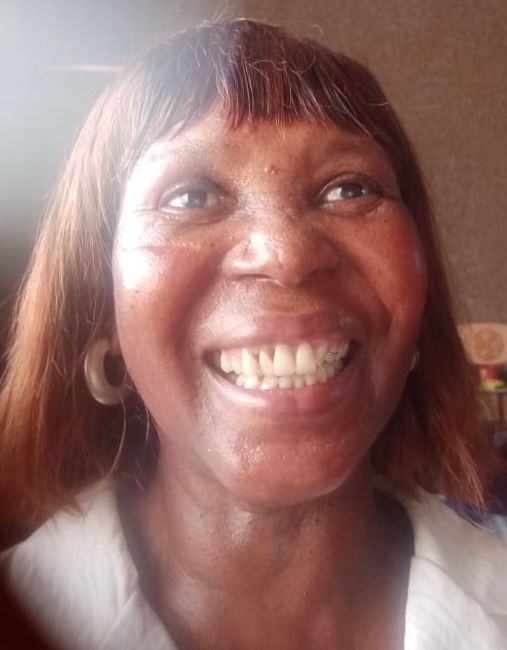Tiny Dhlamini

Summary: Tiny Dhlamini, an environmental and gender justice activist, fights for the rights of mining communities by raising awareness, engaging authorities, managing interface meetings, and advocating for the rehabilitation of the mining dumps in Snake Park, South Africa. Today, Dhlamini leads Ntabamhlophe Solutions, a group that mobilises for action against mining companies that are polluting the environment and causing massive human suffering and death. Her work is not without challenges. For example, politicians stalk and threaten her and demand she report to them before she holds any meetings.
Profile: Tiny Dhlamini knows what it’s like to be poor and disadvantaged. Born in White City, South Africa, she moved to Zondi with her grandmother and mother when she was young. Her experiences got worse after that: “When my mother got married, I was left with my grandparents, who later passed on. I was left with my uncle. I was segregated in such a way that I was not even allowed to go to school. I was forced to stay at home and look after my uncle’s children and do house chores. Sometimes I would go to bed on an empty stomach.”
Dhlamini thinks her upbringing ignited the spirit of activism in her: “What happened to me is my being poor and marginalized is what compelled me to be who I am today, a very strong lady with a mind of her own,” said Dhlamini. That strength has manifested itself in Dhlamini’s activism for gender justice (her mother was raped) and the effects of mining on women and children who have been exposed to heavy metals such as mercury, uranium, and lead that are found in abandoned mining dumps. Currently there are more than 6.000 of these dumps across South Africa.
Dhlamini’s style of leadership focuses on vulnerable communities, and her leading the nonprofit organization Ntabamhlophe Solutions helps her make alliances with “the marginalized, poor, and the neglected throughout the country.”
A report by Bench Mark Foundation revealed that two thirds of Snake Park residents who were surveyed complained about respiratory problems, while research by Al Jazeera News found several children born with mental and physical defects. This is primarily why Dhlamini’s goal is to rehabilitate abandoned mining dumps in Snake Park. Lately, she has attempted to do that through phytoremediation, a process of using plants to demobilize heavy metals.
These efforts can be frustrating. As Dhlamini says, “I told my colleagues that it has been a long time since we have been talking about mining impact upon people. It has become tedious, and we have to come up with a solution. I then introduced phytoremediation. I explained what it is and how it works.”
As a result of her work, Dhlamini faces challenges. Politicians stalk and threaten her: “I remember when I was having a workshop, I was confronted by two men from a certain political party who told me that I had to report to them on my awareness-raising programmes in Snake Park,” said Dhlamini.
But she is not deterred: “I am one person who is very strong. I am a woman. . . . If you try to suppress me, I will find a way out. If you are a true activist, there are people who will not like you. If you try to discourage me, thus how I become strong.” Dhlamini is determined to continue her activism, regardless of the lack of finances or the threats: “I will continue until I see the army that I have raised running with the baton and win this battle. It's not easy until it's done.”
